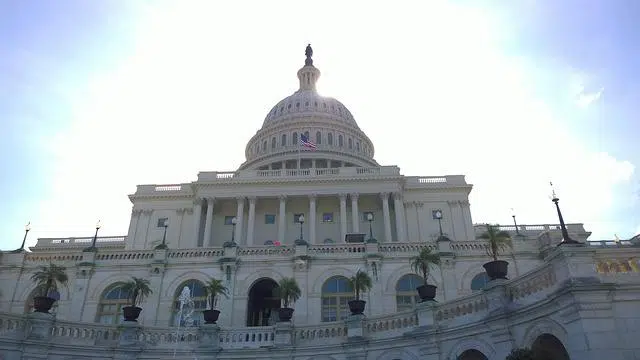With the introduction in Congress on Thursday of a bill that attacks rising credit card acceptance costs, lobbyists for both sides of the issue lost no time firing broadsides, pro and con, over the matter.
The legislation, co-sponsored by Richard Durbin, D-Ill., and Roger Marshall, R-Kan., seeks to ratchet down costs for merchants by requiring that sellers have a choice of at least two unaffiliated networks for transaction routing. The bill proposes that this choice will inject more competition into credit card processing.
But the card industry responded Thursday with a strong rebuttal, arguing the legislation amounts to a “government handout to big-box retailers,” according to Jeff Tassey, chairman of the Electronic Payments Coalition, a card-industry lobbying group, as quoted in that group’s statement. Some of the biggest chains, including Walmart Inc., have been the most vocal critics over the years of card-acceptance costs. Expenses for credit and debit card acceptance amount to merchants’ second-highest cost after labor, totaling $137.8 billion last year, according to the Merchants Payments Coalition, a group that lobbies for lower card costs.

Tassey in his EPC statement further alleged the bill, if enacted, will route credit card payments to “less-secure, less-innovative, and higher-risk” networks. According to the bill, one of the networks can be Visa or Mastercard, but the second one must be a network like Star, Shazam, or another large national system not affiliated with the two credit card giants.
The EPC also argues the bill would threaten rewards cardholders’ earn through Visa and Mastercard transactions. “Consumers choose their credit cards based on the value they place on payment security and rewards programs. The proposed legislation would remove choice from consumers, take away consumers’ card benefits, including rewards, and allow retailers to choose cheaper, less safe networks,” Tassey charges in his EPC statement.
By contrast, merchant groups are celebrating the bill as a measure that, they argue, will enhance merchant choice of payment method and save “billions of dollars per year” for businesses and consumers. “By requiring card networks to compete over who gets to process a transaction, exorbitant fees that have skyrocketed could finally be brought in touch with reality,” said Doug Kantor, general counsel for the National Association of Convenience Stores, in a statement. “This is a solution that would let a free, fair, and competitive market determine prices in the payments industry.”
The Merchants Payments Coalition in its statement said competition in credit card routing could save merchants at least $11 billion annually. The group cites estimates from the research firm CMSPI. A similar law, enacted in 2010, has racked up $9.4 billion savings yearly for merchants accepting debit cards, the group says. That law, known in brief as the Durbin Amendment, also requires a choice of networks and caps fees large issuers can levy on merchants.
The proposed legislation, known as the Credit Card Competition Act, would apply to issuing banks whose assets total $100 billion or more. While there are only about three dozen U.S. financial institutions in that group, they account for the bulk of credit card volume. Also, the bill would prohibit Visa and Mastercard from routing each other’s transactions.
The Federal Trade Commission has been conducting an inquiry into whether Visa and Mastercard have acted to restrict debit card routing, and the Department of Justice has launched an investigation of Visa over the same matter.





